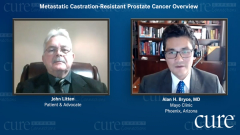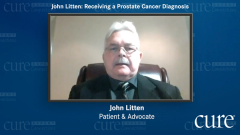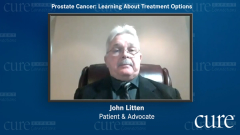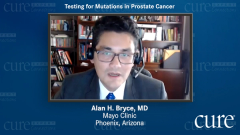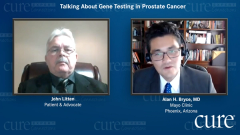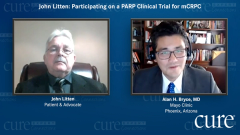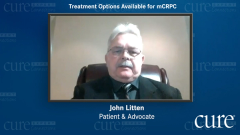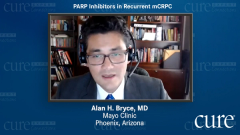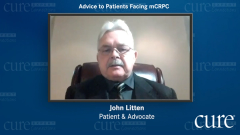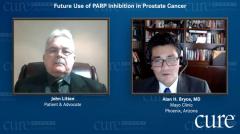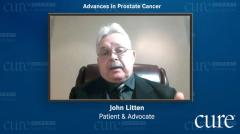
Genetic Counseling for Prostate Cancer
Episodes in this series

Transcript:
Nicholas J. Vogelzang, M.D., FASCO, FACP: About 25% of patients with prostate cancer, maybe less dependent on where their age falls or what their grade group is, have mutations that cause prostate cancer. The most common genetic mutation causing prostate cancer is called the BRCA gene. It is commonly called BRCA2. There is a BRCA1 that is less serious. And then there are about a dozen or more other genes that, when broken or mutated, can also cause cancer. These genes are commonly inherited from the parents. The BRCA gene can come down from either your mother or your father’s side. The BRCA gene may cause breast cancer in women. It also may cause ovarian cancer.
In other cases, pancreas cancer or uterus cancer. Any one of those cancers could be caused by a BRCA gene. Now, the FDA [United States Food and Drug Administration] and what we call the guideline group, NCCN [National Comprehensive Cancer Network], recommend that all patients get BRCA tested, or at least genetically tested if they have a family member with one of those cancers or if their father or brother had prostate cancer, or if they’re particularly young. Frequently we do genetic testing on men who have a four or a five [grade group]. Typically, we don’t do genetic testing on one or two grade group cancers. Sometimes on a three, if their family history warrants it, or if they’ve had another cancer. There are a variety of reasons why you would do genetic tests.
Genetic testing can be done in two ways, and should be done in two ways. Number one, you do the germline. That means that the cancer we suspect is inherited from one of the parents. Or you do somatic, which means that you got struck by lightning and you’ve got the gene, but you didn’t know where it came from. And those may be things like Agent Orange, or external beam radiation, or any number of ways that you can inherit it. We do somatic [testing] on the cancer itself. We do germline on your saliva or blood. There are now ways to do germline on the cancer, and there are companies that will do both on one specimen, which is time-saving, and allows us to get an answer quickly.
If we discover one of these genes that are mutated, we as doctors, begin the process of talking to the family about these genes. It’s a bit complicated. And so that’s where a genetic counselor may come in. Some doctors will refer the patient to the genetic counselor and let the genetic counselor do all the work. That’s what I used to do. Now, I do most of it myself. But when the family is complicated or when I’m not sure about the gene, then I send them to the genetic counselor.
During counseling there are many complexities. Many of them are not known today about what the gene does. We call those the VUS genes, variant of unknown significance. Many times you will find a man who has a mutation of an important gene. Let’s say they have CHEK2, that’s one of the common genes that can cause prostate cancer. Then there comes a report saying VUS. And you don’t know, you literally do not know. For example, I’ve had a variety of patients from Cuba, and I’ve had a number of BRCA1 mutations in my Cuban patients that are VUS. And we don’t know, is that a cancer-causing mutation? Or is that just a carrier mutation that happens to be part of the Cuban legacy? There are many areas in which we don’t know. And usually I will refer them to the genetic counselor for further evaluation.
I’ve done this so many times now that I don’t need a genetic counselor right away.
Transcript Edited for Clarity







